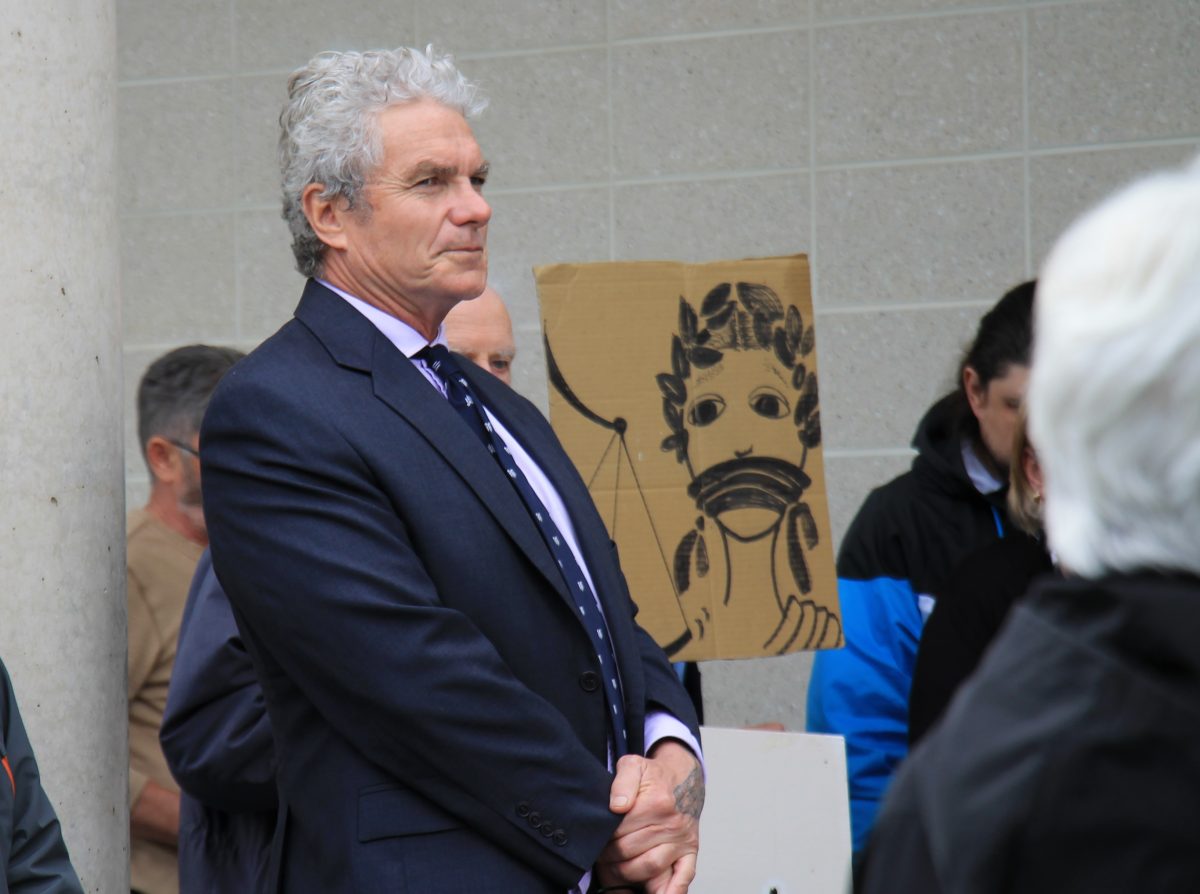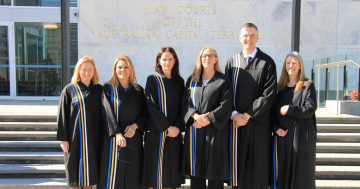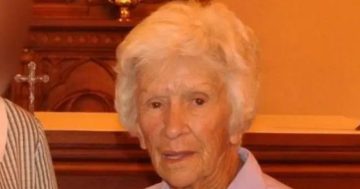
David McBride, pictured at a rally outside the ACT Courts in 2022. Photo: Albert McKnight.
It appears David McBride has reached the end of the line in his attempt to appeal his convictions for stealing and sharing classified documents after Australia’s highest court refused to hear the matter.
Last year, the ACT Supreme Court sentenced the former army lawyer to five years and eight months’ jail with a non-parole period of two years and three months.
He appealed against his convictions and sentence, which was unanimously dismissed by the three judges on the ACT Court of Appeal earlier this year.
McBride then sought special leave to appeal this decision in the High Court, the highest court in Australia.
However, late last week, the High Court refused his application. The court published the outcome of his application, but not the reason for its decision.
As a result, McBride must remain in prison until the end of his non-parole period, which means he can be released in August 2026.
After spending years fighting his charges, he pleaded guilty to one count of theft and two counts of the unauthorised communication of military information to other people while a member of the Defence Force.
Court documents say he had been a lawyer with a high-level security clearance and held the rank of major in the Australian Army.
When police raided his home in February 2018, they seized 235 documents that had been stolen from ADF facilities – 207 of which were classified as secret.
McBride had several complaints about ADF management and submitted a report to the Inspector General of the Australian Defence Force (IGADF) in August 2014, which included numerous confidential documents.
One of his complaints was that special forces soldiers involved in the deaths of civilians in Afghanistan were being investigated by military police even where there was no reasonable suspicion that the war crime of murder had been committed.
The IGADF began an inquiry into his claims. Meanwhile, McBride submitted his documents to journalists Chris Masters and Andrew Clark, who ultimately didn’t use them in their reporting.
Then, in April 2016, he set up a website on which he published some documents. Afterwards, he was contacted by ABC journalist Dan Oakes, who gave him his IGADF submission and other documents he had taken from ADF facilities.
Mr Oakes used the documents to publish The Afghan Files, which featured allegations that special forces soldiers were unnecessarily killing Afghan civilians.
McBride later told police, “He did do a story on it, but a totally different story to the one that I was pushing”.
His sentencing judge, Justice David Mossop, said the focus of these articles was “the exact opposite” of what McBride had intended when he handed the documents over.
Original Article published by Albert McKnight on Region Canberra.










